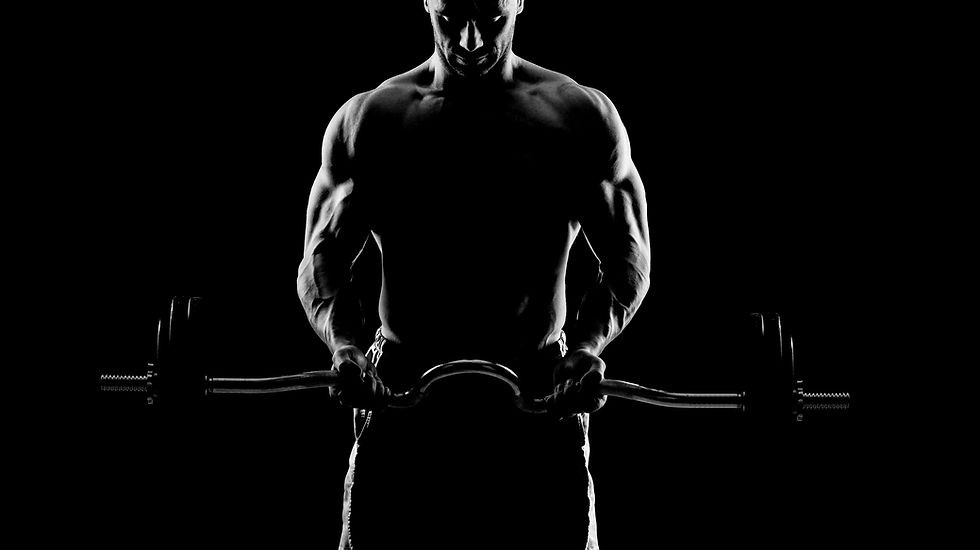The Myth of Masculine Self-Esteem
- Craig Freund, MA, LPC, ACS
- Jan 5, 2018
- 4 min read
Updated: Apr 10, 2024

Recently, on my morning commute, while listening in on a local morning radio show, I was struck by the reminder of the fallacy of masculine self-esteem as it pertains to the stereotypical male. On the radio show, the hosts debated how they would feel about their partner “checking out” other men or women. The female host was quite confident in expressing that she felt this would be disrespectful, as well as that this would cause her some discomfort and that she simply would not be okay with this behavior. In this, she expressed her vulnerability and stated need for security, as well as respect in the relationship, thus allowing the potential for productive discourse on the subject, regardless of her opinion. The male host on the morning show expressed that he would have no problem if his partner was checking out other people. He expressed that this was because he was the “real deal” and because of this he would have nothing to worry about.
At face value, this may appear as if the male host is perfectly confident in himself, but under the surface we can see an attempt at expressing invulnerability (having nothing to worry about), masking insecurity and possibly shame (not good enough, because partner is checking out other people), with an expression of grandiosity (being the “real deal”).
Often, men attempt to handle situations that might bring-up insecurity by overinflating a sense of grandiosity.
Why you ask? This is because insecurity can lead to a question of being good enough and the quickest way to go from feeling one down is to jump to feeling one up.
In another example, you may have overheard a conversation as follows, “I maxed my bench press out at 280lbs today,” workout buddy replies, “damn, well I squatted almost 400lbs.” Where the second weight lifter might feel shame, inadequacy or insecurity due to the others strength in his bench press, he quickly notes his grandiosity in his strength with his squat. Again, we see a quick jump from insecurity to grandiosity. Similarly, putting others down can leave one feeling better than or grandiose. Using the example above, one weight lifter might comment on how scrawny the others legs or arms are, although this may be done in a humorous fashion, the shame/grandiosity dynamic is present. As you can, this dynamic might not immediately hurt the grandiose individual, but it does immediately impact those in relationship with the grandiose individual.

In the world of psychotherapy, we might call this a defense strategy. However, like many defense strategies this too can be quite problematic. Often this type of grandiosity prevents a deeper connection, while connection is something that we all have a profound need for, especially as it relates to our mental health and capacity for empathy. This type of grandiosity often pushes others away, typically folks don’t enjoy constantly feeling less than their grandiose other. Additionally, this type of grandiosity doesn’t address the underlying vulnerability, insecurity or deeper self-worth issue. By addressing insecurity with vulnerability, we have an opportunity to overcome these insecurities and develop a healthy sense of self-esteem. Healthy self-esteem is not about being greater (grandiosity) or lesser (insecurity/shame) than other men. Instead, this fosters a false sense of self-esteem, where healthy self-esteem relates to an internal and even spiritual sense of well-being, not because what I have or what I do is better or worse than others, but simply because I am.
Coping with a feeling of being lesser than with a jump to inauthentic grandiosity, eliminates the opportunity for our true selves to be seen and accepted by others, thus creating a false sense of self-esteem based on a striving to be better than.

Terry Real believes that all men in this culture, suffer from some level of male type depression and related symptoms. As we can see, this type of non-relational ego preserving invulnerability greatly contributes to the issue of men’s mental health. As stated in the article Redefining Masculine Courage: In the Face of Vulnerability, “we can see that the stereotypical masculine man isn’t courageous at all, but is instead existentially crippled, shame-ridden and limited with a deep seeded fear of true self-expression and acceptance.” Left to cope with a lack of connection, as well as a false sense of self, many men turn to substance, suicide or domestic violence. With 4 out of 5 completed suicides in this country being men, we must step towards authenticity both with ourselves, as well as in our relationships. Rather than avoiding an experience with vulnerability, men might instead, step with courage and embrace their vulnerability, finding deeper connection, relationship and genuine self-acceptance and self-esteem. With an ongoing epidemic of male type depression, dialogue and action around the fallacy of grandiosity, as well as these extensions of toxic masculinity becomes crucial. We all have insecurity and vulnerabilities, owning these and engaging with vulnerability, rather than grandiosity is powerful, growth promoting and relationship fortifying.
Craig Freund is a true modern gentleman, psychotherapist and writer in Denver, Colorado. Craig is passionate about helping men and their families to reach their true potential in living happy and successful lives. Find him at www.ElevatedCounseling.org.






